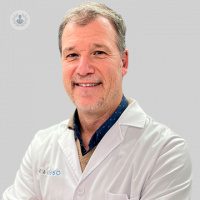ADHD: Causes, Symptoms and Treatment
Written by:From early childhood, children spend most of their time between home and school, and it is often in this latter area that the first difficulties or differences in academic performance are detected, which often lead to the exploration by A specialist in Neuropsychology and who is to make the diagnosis insofar as the main symptom is a cognitive deficit: selective attention. In recent years there has been an increase in the number of cases diagnosed with Attention Deficit Hyperactivity Disorder (ADHD), and in the great majority of cases, the great concern of parents and teachers lies in the evolution that the child will have once diagnosed The disorder, not only in the school environment, but at all levels where the child develops psycho-emotionally.

Causes of ADHD
ADHD is a clear neurobiological disorder that affects the cognitive state (attention), emotions and behavior in 3-7% of children worldwide. Mainly, the diagnosis is based on a selective and / or sustained attention deficit, with or without motor restlessness, without purpose, generalized or present in any environment, with present symptoms of impulsivity. This symptomatology manifests itself with an intellectual capacity (intelligence) within normality and affects academic performance and other specific learning such as calculus and reading. Although there are different theories that could explain the origin, the neurobiological cause is considered the main responsible. In addition, this disorder has a high genetic content , up to 80% of ADHD cases present a relative with similar characteristics.
Subtypes of ADHD
In the Diagnostic and Statistical Manual of Mental Disorders (DSM-5), published by the American Psychiatric Association, three subtypes are distinguished within ADHD:
- Attention-deficit / hyperactivity disorder predominantly inattentive subtype- Attention-deficit hyperactivity disorder predominantly hyperactive-impulsive subtype- Attention deficit disorder with hyperactivity combined subtype (presenting symptoms of both inattention, hyperactivity and impulsivity)
Symptoms of ADHD
It should be noted that not all children with this disorder have the same symptoms or with the same intensity. Common symptoms include:
- Impulsivity.- Motor restlessness without purpose and in any environment.- Difficulties in maintaining selective focus and concentration.- Difficulties of working memory.- Cognitive rigidity.- Difficulties to inhibit behavior and self-regulation.
Due to the repercussion of these symptoms in their daily life, can cause emotional and social consequences in the different areas where children develop, affecting their ability to adapt to school, family and social. Emotional problems associated with low self-esteem and inadequate channeling and expression of their emotions can be observed. Therefore, its impact on social adaptation may be even greater than that of the severity of ADHD symptoms.
ADHD Treatment
Although ADHD has a high genetic content, the environment influences to a large extent in the solution of the problems that arise in the life of the child. Due to the behavioral and emotional problems presented by children with ADHD, in recent decades there has been an increasing interest in finding treatments that are effective in solving the possible problems that arise in the social, academic and emotional spheres. Pharmacological treatment , using medications such as methylphenidate, has been widely used with children with ADHD and has been shown to be effective in reducing the symptoms of attention deficit and impulsivity. However, it should be noted that the effects of treatment rarely persist once the active effect of the dose has passed, which temporarily suppresses behavioral difficulties, so that they recur when the treatment is no longer active.
The pharmacological intervention should not only be based on the diagnosis but also on detecting if the clinic negatively affects the academic and social performance of the child. At the same time, it is recommended a neuropsychological rehabilitation and a cognitive-behavioral psychological intervention where the child will be given techniques and strategies so that he can apply in his daily life. The hypothesis is that, thanks to the improvement of these general functions, the benefits are generalized to general cognitive functioning.
It is important to take into account that the treatment for ADHD should be planned from a comprehensive and multidisciplinary approach, adjusted to the child's personal characteristics and to the moment of development of the disorder in which the diagnosis is made. And it is that psychopharmacological treatment is almost always necessary and almost never enough and will certainly guarantee a multidisciplinary intervention between neuropsychological, child and juvenile psychologists and speech therapists, among other professionals.


